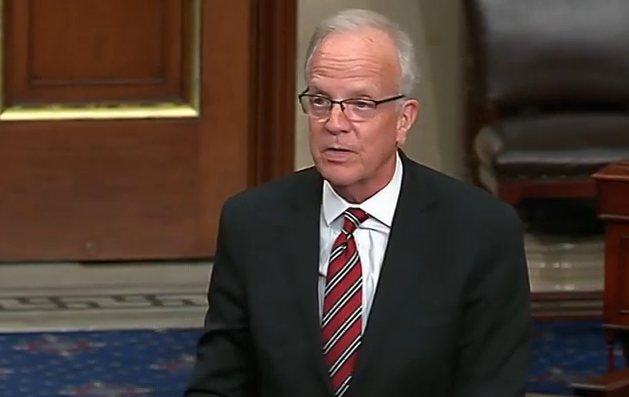
NICK GOSNELL
Hutch Post
HUTCHINSON, Kan. — With the news that Democrats believe they have reached a deal on negotiating the cost of prescription drugs in the Medicare program that can pass through the budget reconcilation process, Kansas U.S. Senator Jerry Moran said Thursday that he hasn't seen what went to the parliamentarian earlier this week, but that using the reconciliation process to pass policy isn't the way he believes that the Senate should run.
"The Senate, for a long time, most of its history, has required a supermajority to consider and pass legislation," Moran said. "It used to be unanimous agreement. Over time, that number has been whittled down to 60 votes and there's an ongoing debate, should the rules be changed to the United States Senate? Senator Sinema and Senator Manchin would not agree to those rule changes. I agree with Senator Sinema and Senator Manchin. It is to the well being of the country, certainly to the functioning of the Senate, that things occur with support from both Republicans and Democrats. A 60-vote rule protects the minority."
The budget reconcilation process is an exception to that 60-vote rule, and only policies that change spending or revenues can be included. Senate debate time is limited, and only certain kinds of amendments can be offered.
"Kansans are often in the minority, even when we're not talking Republicans or Democrats," Moran said. "The way we look at things, rural America, agriculture. Bringing people together is a good thing. The use of reconciliation is one way around the 60-vote rule. It says, whenever you are implementing, by legislation, your budget bill, so you have a budget in place, to implement the spending and taxes that go with that budget, you can pass legislation with 51 votes."
The Senate was designed to be more deliberative and cooperative in nature in the U.S. Constitution, which is why Senators are up for election every six years, while House members face the voters every two years.
"It's designed to counterbalance one with the other, a longer term view with a shorter term view," Moran said. "Our framers, I think, again, got that right, as well. Over time, the Senate has come to look a lot more like the House and I think the country is damaged by that and forcing Senators to work together by the rules, even if not by the goodwill among Senators, is a valuable thing."
Any Senator may raise a point of order against an extraneous provision in the reconciliation bill, amendments, or the conference agreement. Senator Moran serves on the Subcommittee on Agriculture, Rural Development, Food and Drug Administration, and Related Agencies.





